Propounding peace and love without practical or institutional engagement is delusion, not virtue.
GEORG WILHELM FRIEDRICH HEGELNothing great in the world was accomplished without passion.
More Georg Wilhelm Friedrich Hegel Quotes
-





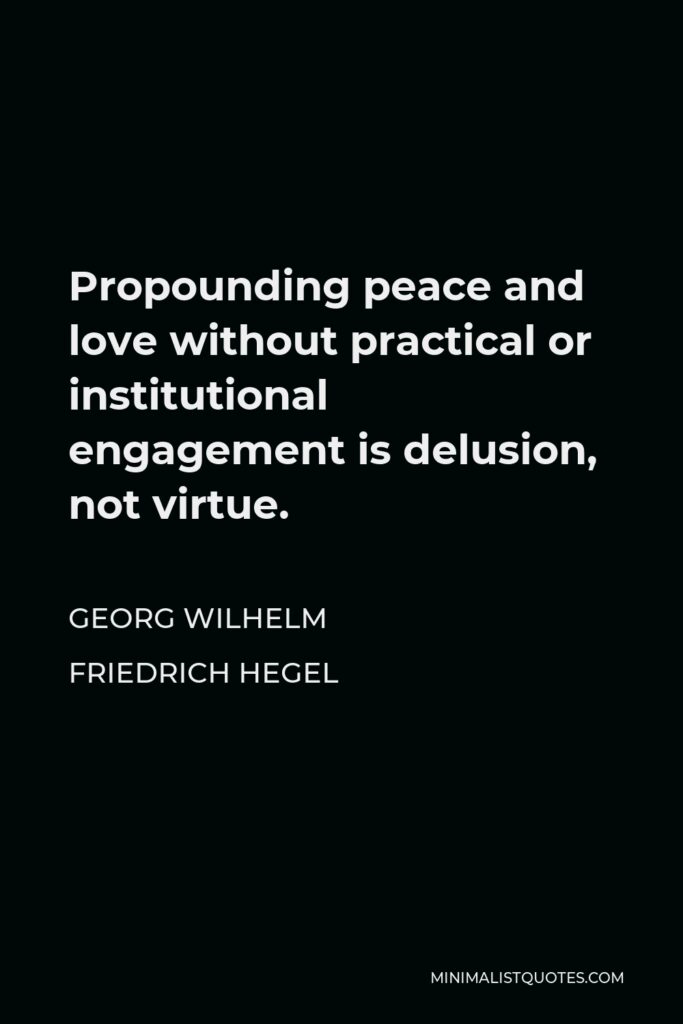

-





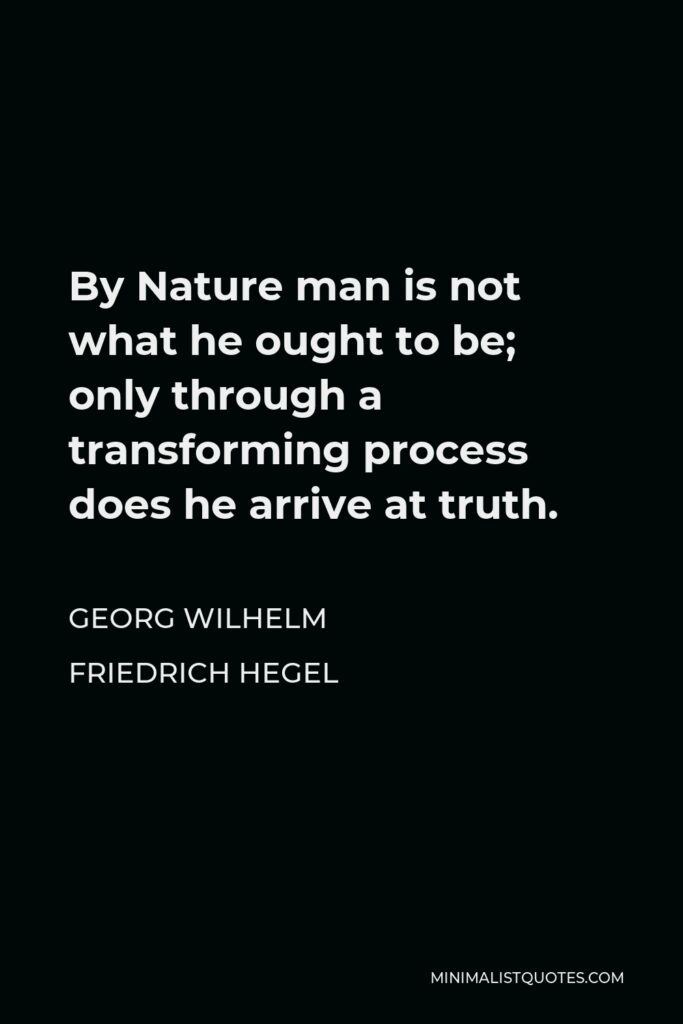

By Nature man is not what he ought to be; only through a transforming process does he arrive at truth.
GEORG WILHELM FRIEDRICH HEGEL -







Commending myself to your kind memories, I wish you pleasant holidays.
GEORG WILHELM FRIEDRICH HEGEL -





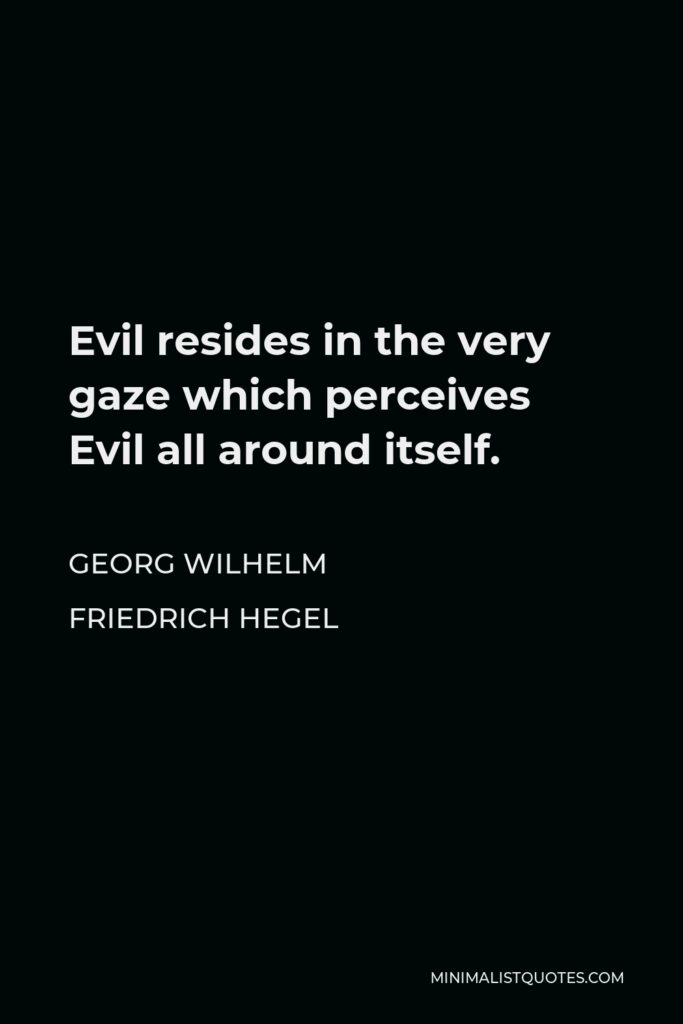

Evil resides in the very gaze which perceives Evil all around itself.
GEORG WILHELM FRIEDRICH HEGEL -





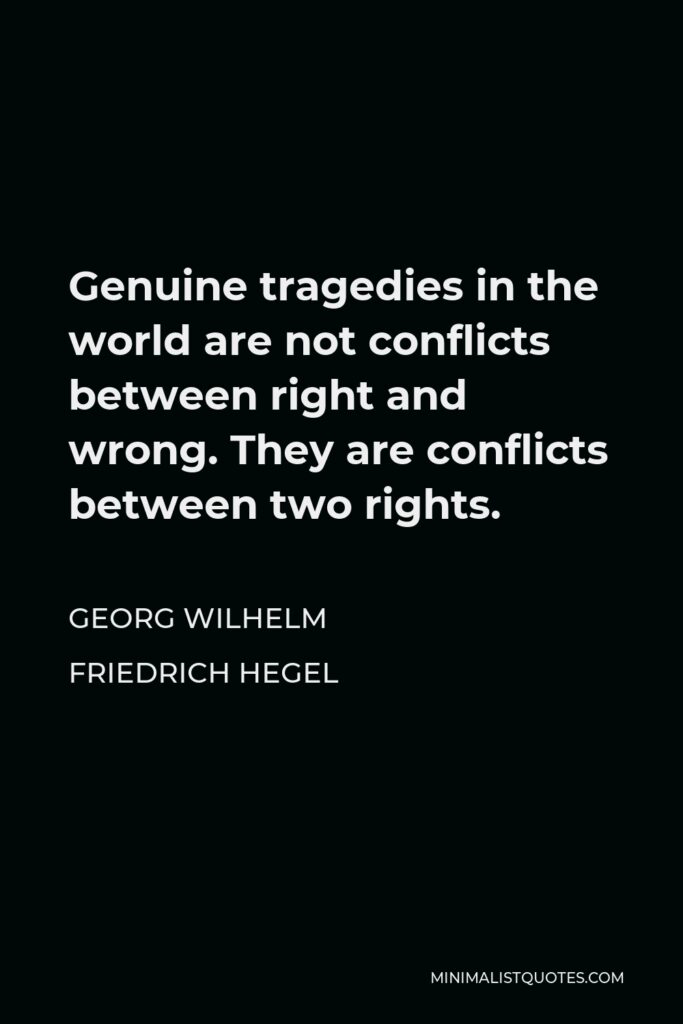

Genuine tragedies in the world are not conflicts between right and wrong. They are conflicts between two rights.
GEORG WILHELM FRIEDRICH HEGEL -





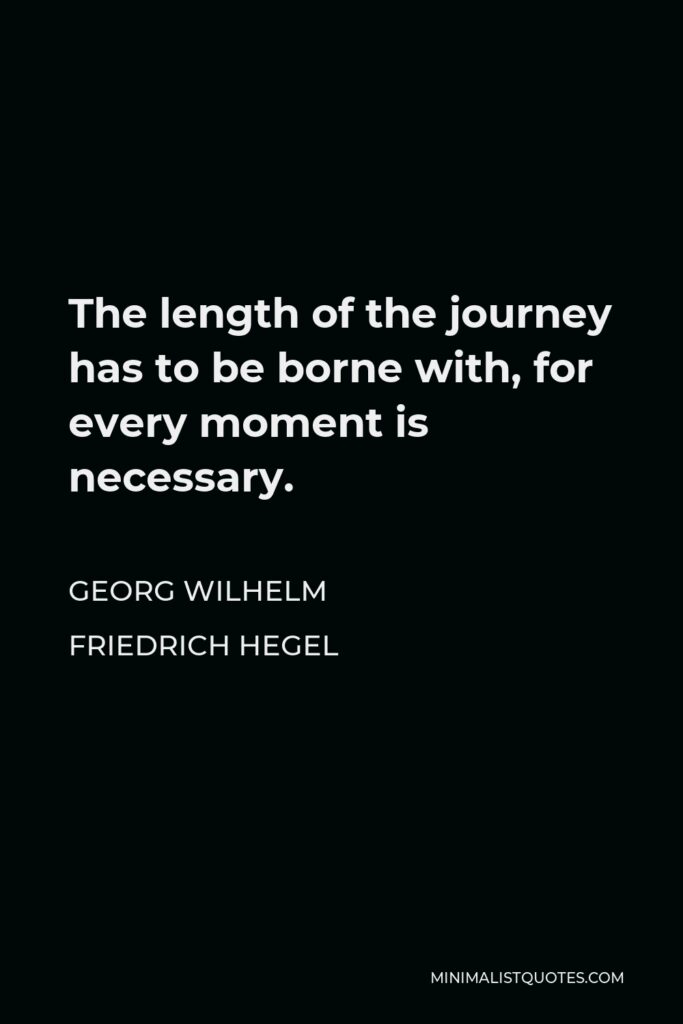

The length of the journey has to be borne with, for every moment is necessary.
GEORG WILHELM FRIEDRICH HEGEL -





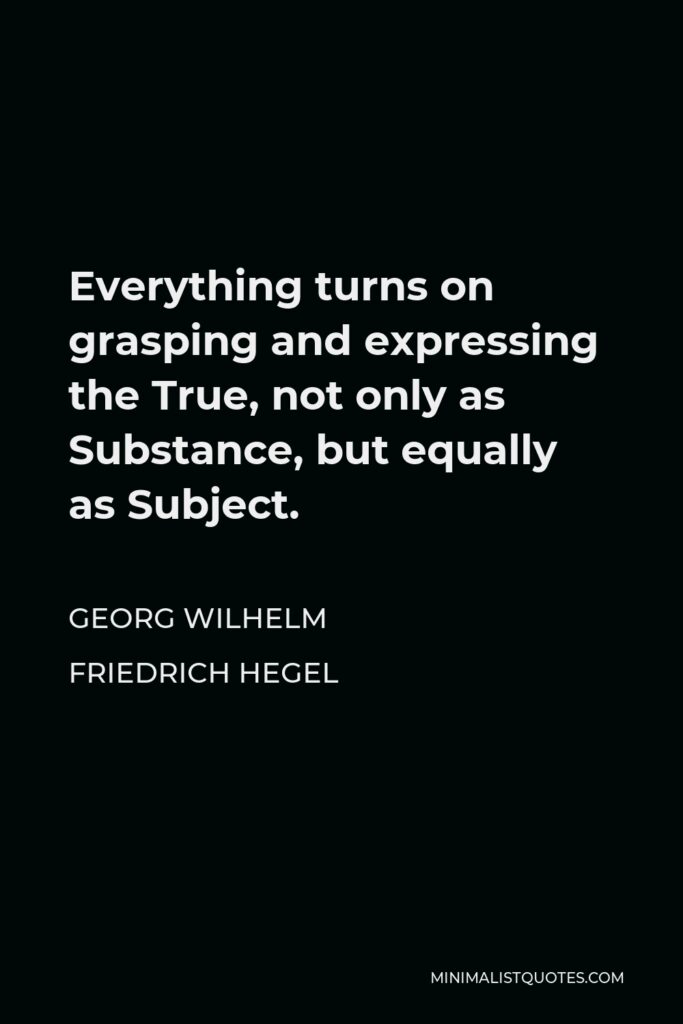

Everything turns on grasping and expressing the True, not only as Substance, but equally as Subject.
GEORG WILHELM FRIEDRICH HEGEL -





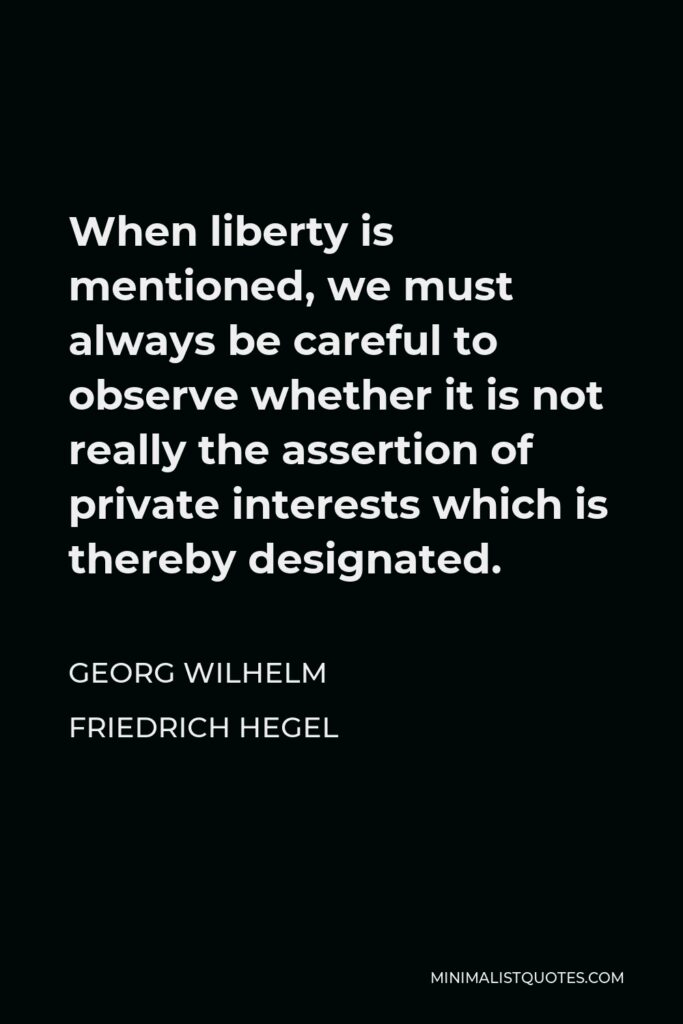

When liberty is mentioned, we must always be careful to observe whether it is not really the assertion of private interests which is thereby designated.
GEORG WILHELM FRIEDRICH HEGEL -





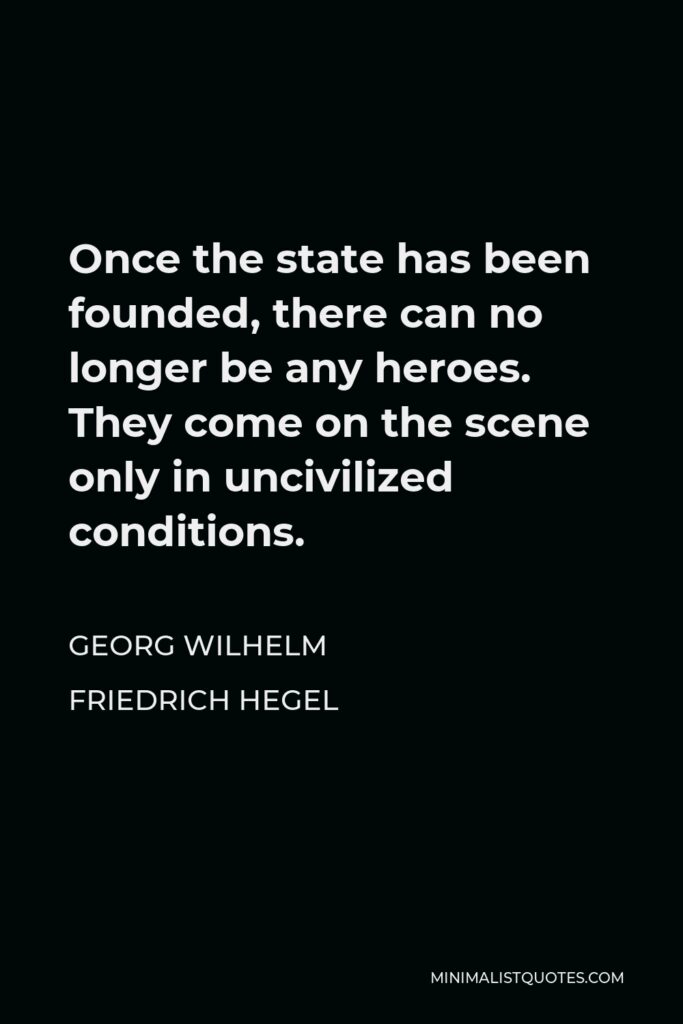

Once the state has been founded, there can no longer be any heroes. They come on the scene only in uncivilized conditions.
GEORG WILHELM FRIEDRICH HEGEL -





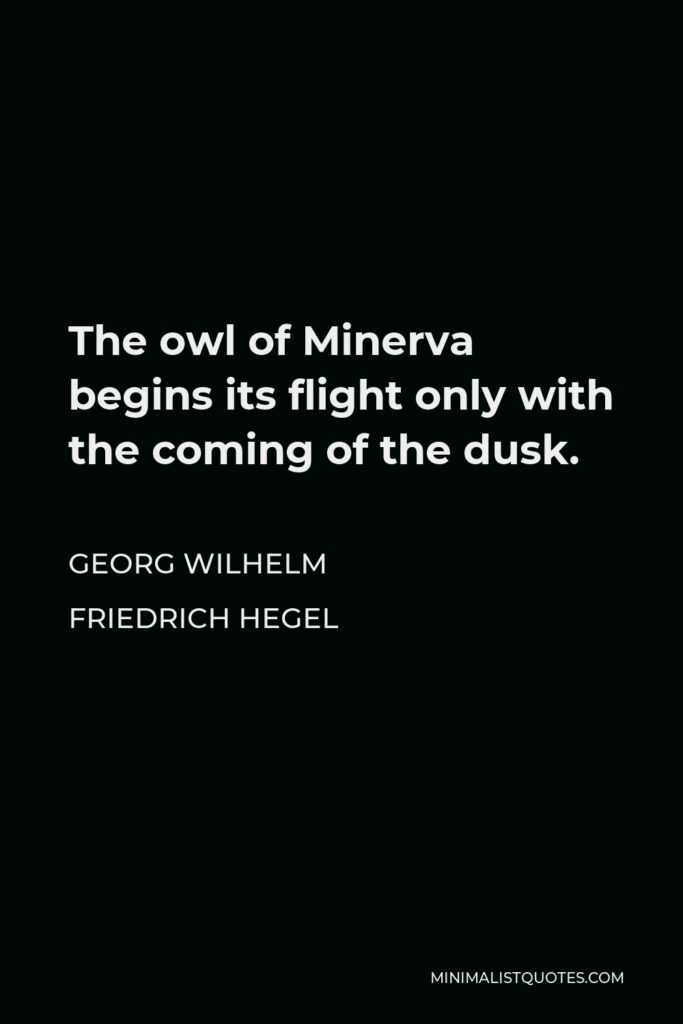

The owl of Minerva begins its flight only with the coming of the dusk.
GEORG WILHELM FRIEDRICH HEGEL -





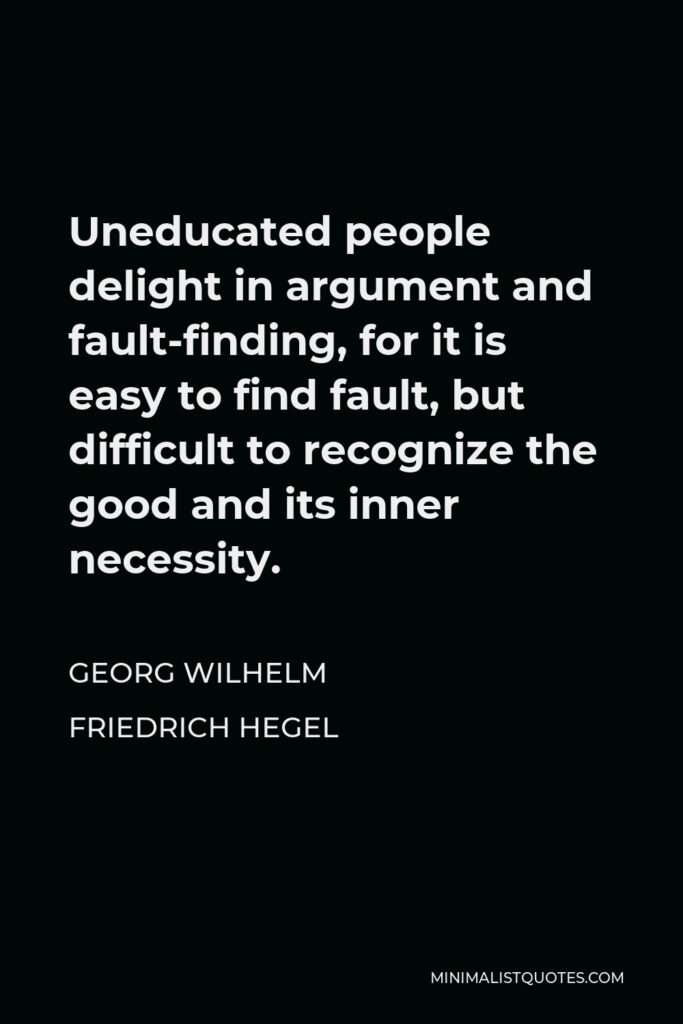

Uneducated people delight in argument and fault-finding, for it is easy to find fault, but difficult to recognize the good and its inner necessity.
GEORG WILHELM FRIEDRICH HEGEL -





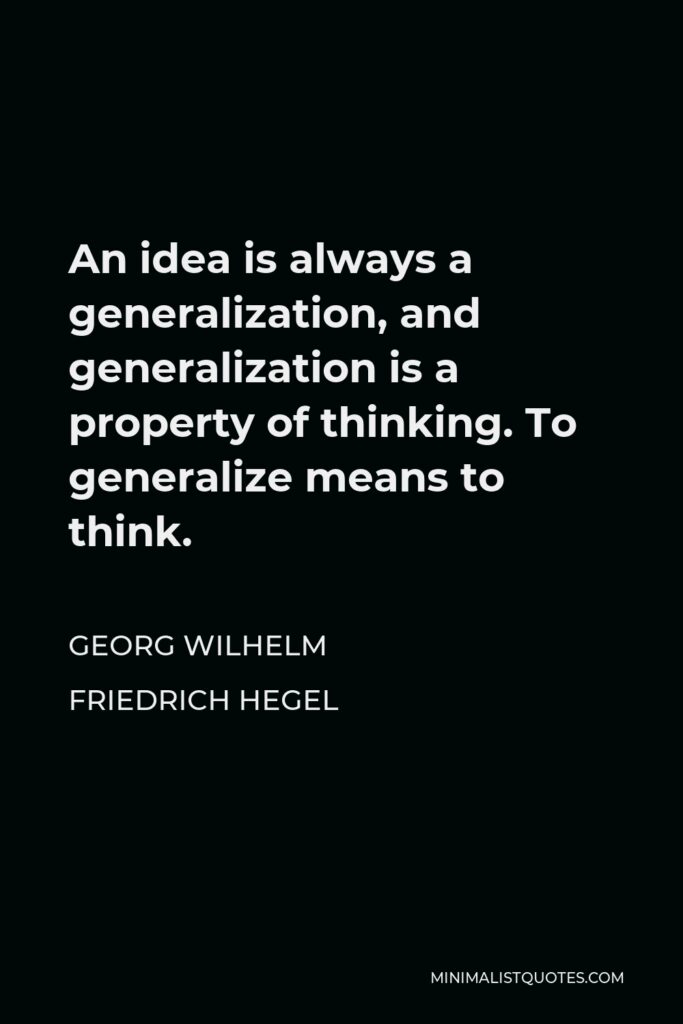

An idea is always a generalization, and generalization is a property of thinking. To generalize means to think.
GEORG WILHELM FRIEDRICH HEGEL -





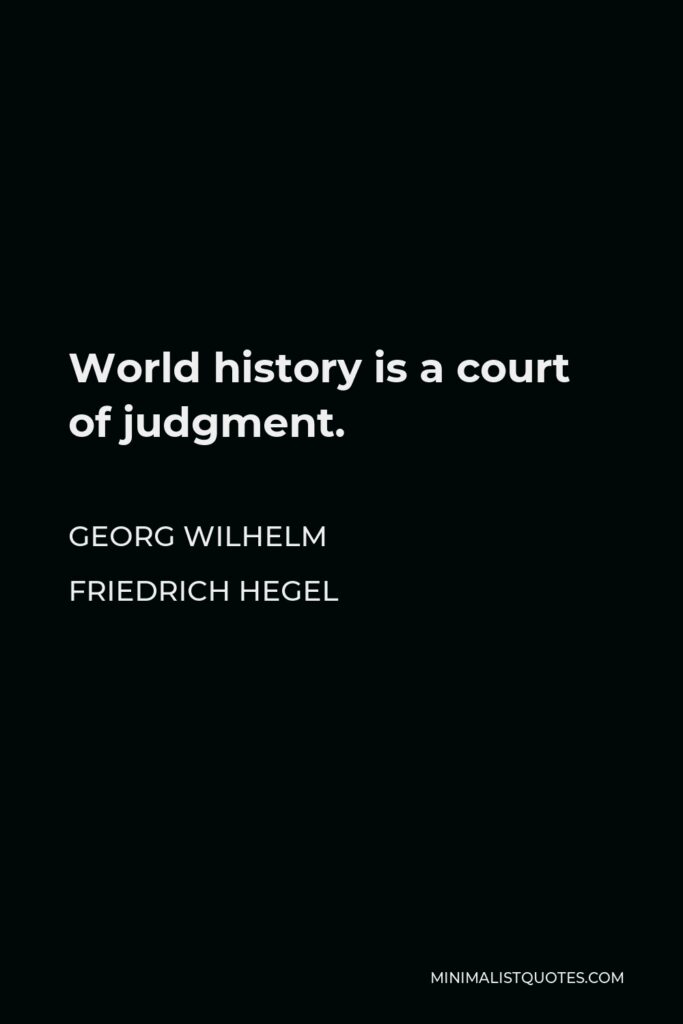

World history is a court of judgment.
GEORG WILHELM FRIEDRICH HEGEL -





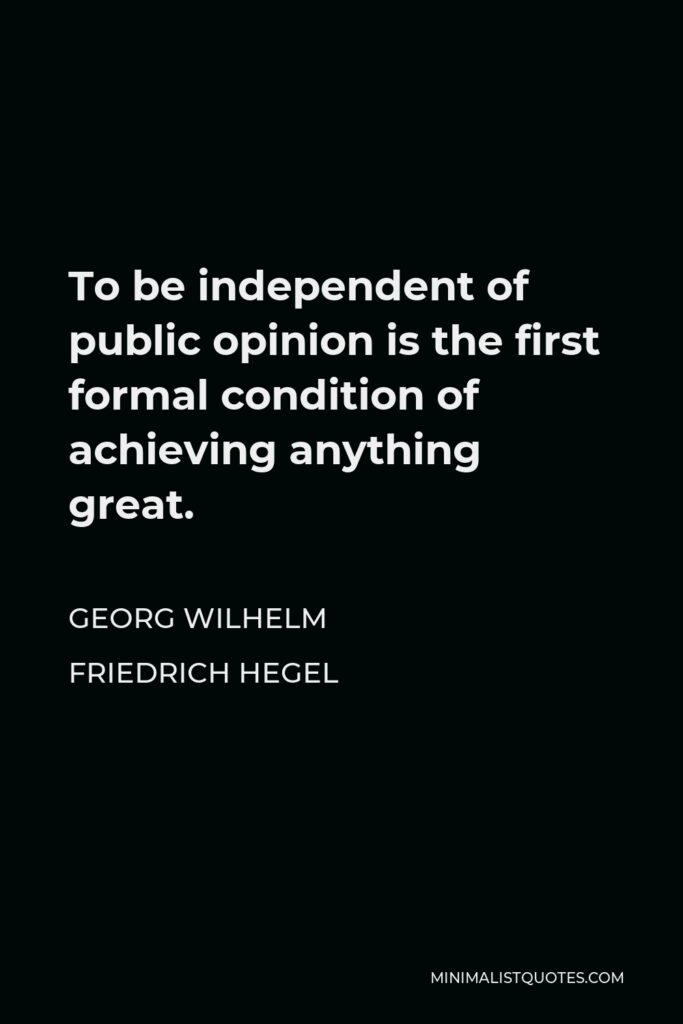

To be independent of public opinion is the first formal condition of achieving anything great.
GEORG WILHELM FRIEDRICH HEGEL -





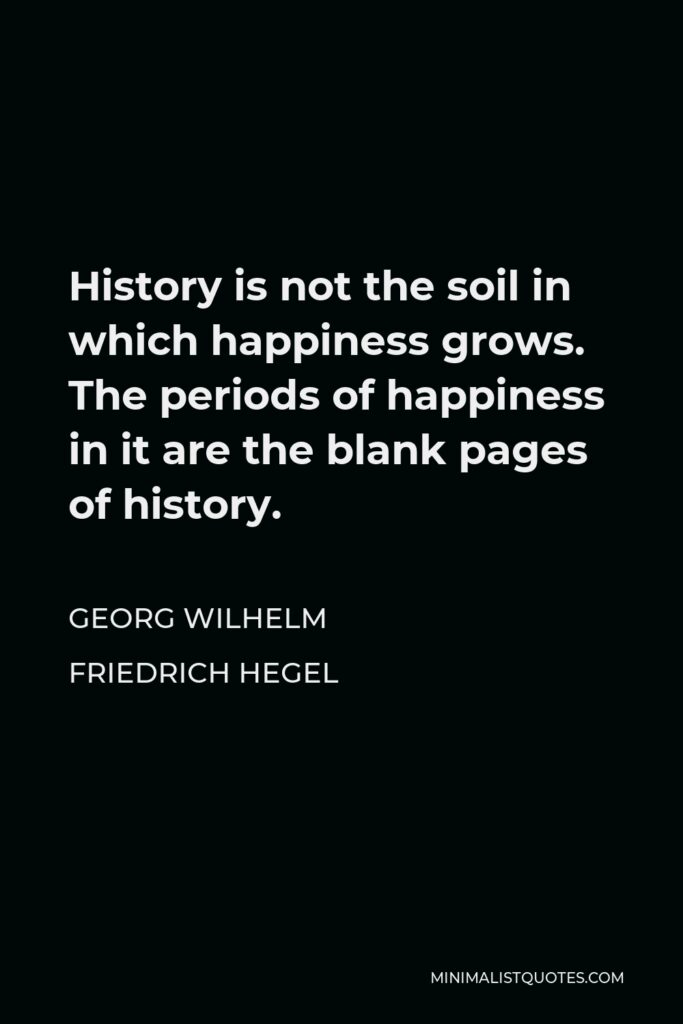

History is not the soil in which happiness grows. The periods of happiness in it are the blank pages of history.
GEORG WILHELM FRIEDRICH HEGEL -







Nothing great in the world was accomplished without passion.
GEORG WILHELM FRIEDRICH HEGEL








